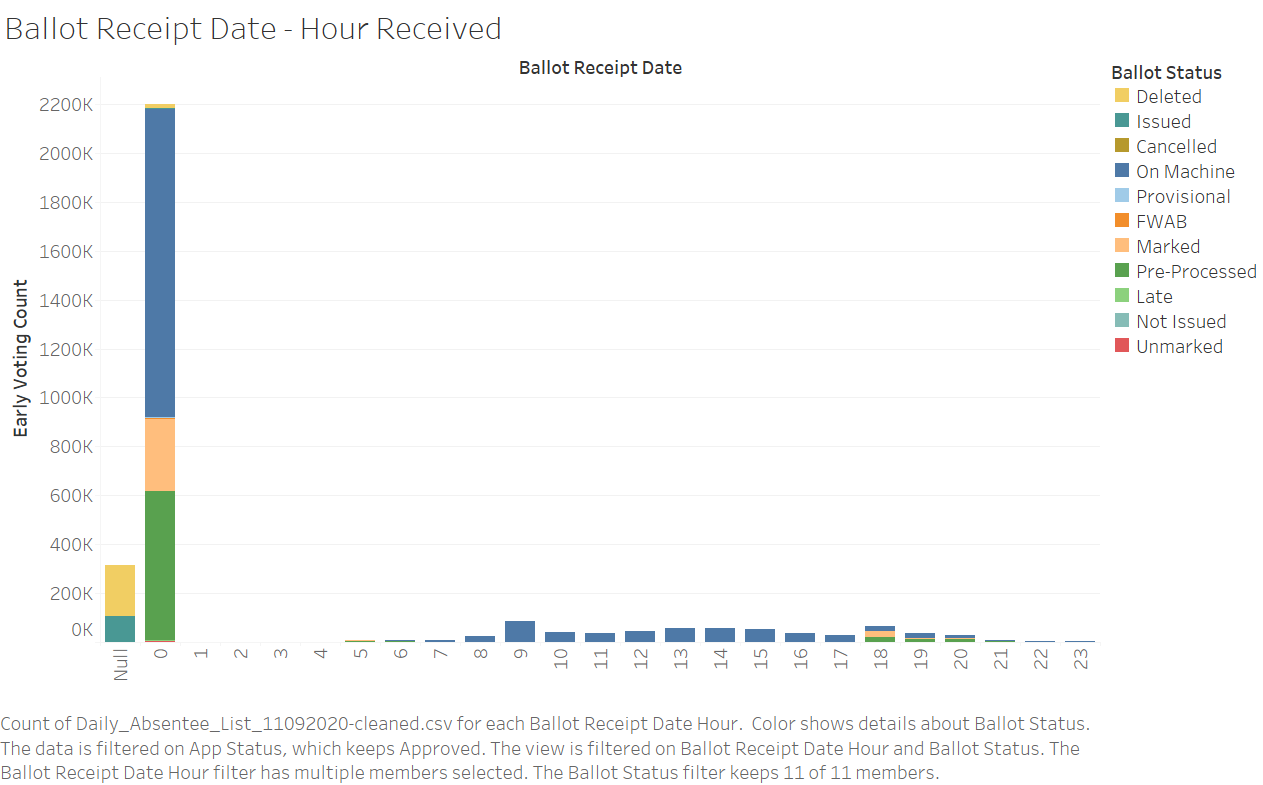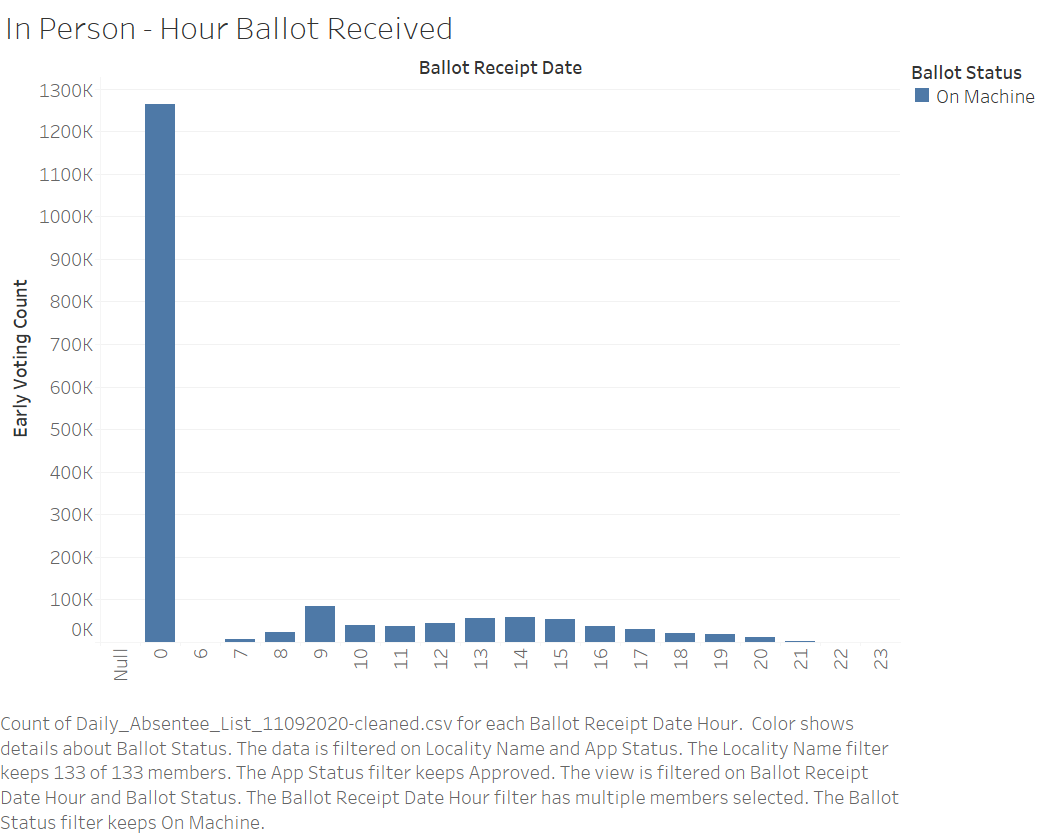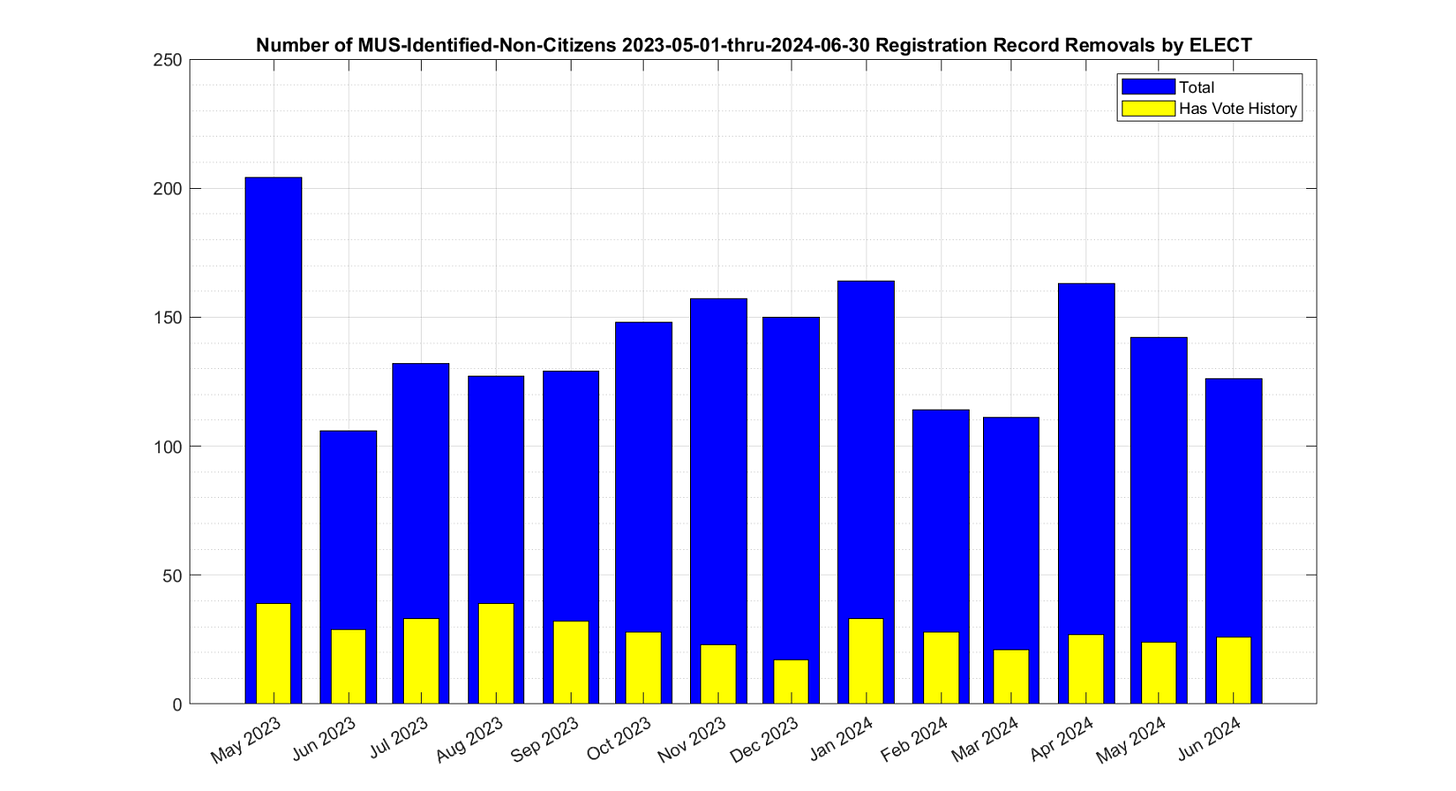Accurate voter registration lists rely on local citizen involvement. Here’s one citizen expert’s take on why that’s important.
EPEC Team Newsletter by Rick Naigle, EPEC Board Member, Senior Analyst
It is well past time to push back, and refute the idea that citizens who raise issues of electoral process shortcomings are pushing misinformation. As the rule goes, check your source and check the facts.
Many citizens have become quite educated about electoral processes and are only requesting they be followed. That’s the ethos of volunteer-driven Electoral Process Education Corporation.
We are a nonpartisan, nonprofit whose charitable mission is voter participation through trusted results. Our team of “citizen experts” also happen to be experts in their fields, such as database programming, network storage best practices, software development, data analysis, election mechanics, publishing, content strategy, and media, to name a few skill sets.
We find that, over time, many people involved in election integrity become very knowledgeable sources. They pursue accuracy and clarity in their published work. That has been our experience with EPEC.
EPEC’s volunteer data scientists and information technology experts analyze data provided by Virginia Department of Elections. But that’s not all we do. Our voter-participation mission includes digital poll watchers, trained poll watchers, election officers, and data auditors. We provide information so election-security risks can be mitigated, and shortcomings corrected over time.
Turning information into knowledge, and filtering information in visualizations, is one of my areas of expertise. As a former military official, I had to provide real time information to commanders who needed to make split-second decisions.
In many ways, the ballot is analogous: there is no room for error.
Election officials must ensure eligible voters are casting ballots, and intercept any ineligible ballots before they reach the ballot box. Every invalid ballot cast and counted silences the voice and civil rights of an electorate to determine their leaders.
The data we “citizen experts” use in this mission come from a growing array of reliable sources, in addition to the Virginia Department of Elections.
Our commitment to facts and accuracy have paid off with solid findings that help election officials improve their processes and build trust in the electorate. If we are off on the numbers, we correct quickly.
It is hard to understand why election officials or self-appointed boards and panels would be offended by “citizen experts” identifying electoral process shortcomings and requesting corrective actions. These citizens play an important role in managing elections to best practices — and the law.
Which brings us to recent EPEC findings that raise electoral process questions:
The first chart below from the Daily Absentee List (DAL) provided by the Dept. of Elections shows when ballots were received in the 2020 general election. The first column (“null”) means the ballot was cast with no time entry.
The second column shows types of ballots cast, but is not reflecting time stamps. How does In-Person voting take place without a ballot receipt time being recorded? Voters generally check in with the help of an electronic poll book to vote In Person.
That time data should be captured from the poll book when the voter is ready to receive a ballot. According to DAL records, Virginia had 1.264 million In-Person ballots tabulated in 2020 without a ballot receipt time.

Ballot Data When Polls are Closed
We also saw in the data approximately 34,000 In-Person votes received during hours when polling places were closed, but were recorded as On-Machine votes. The time-stamp should reflect when the In-Person voter is handed a ballot. Otherwise, why does ELECT keep data that appears to show people “voting” when polls are closed?

Registered Voter List Findings
Virginia’s voter-list records show about 200 registered voters with an empty “Last Name” field, according to a recent official Registered Voter List (RVL) and EPEC’s reporting. About 7,200 voter records exist in the file with a blank “state” field, according to the data. We have to assume they are residents of Virginia.
We see 3 registered voters with Arizona, Ohio, and Georgia entries in the “State” field of the Virginia Registered Voter List. Are they outside of their home state on temporary duty? Maybe. Or maybe they just got on the list. We “citizen experts” believe it is worth checking.
See more of my report on this issue here.
Readers may be aware of EPEC’s recent reports about voters with impossible ages, including one listed as 130-years-old in Henrico County.
Although we were able to share the findings with registrars, some state registration records still show 40 voters over the age 117, which is the age of the world’s oldest known human, according to the Guinness Book of World Records. Of that group, 35 are still listed as “active,” meaning they cast ballots in recent elections.
On the other end of life: Can a voter register before being born? We see registration dates prior to the voter’s date of birth.
Statewide, Virginia counts about 6+ million possible voters; some 420,000 (about 7% of the eligible voters) are listed as “inactive,” meaning they have not cast a ballot in the last two federal elections.
As part of Gov. Glenn Youngkin’s Executive Order #35, Virginia removed 6,303 noncitizens from the voter rolls between January 2022 and July 2024. Virginia law requires voters to be U.S. Citizens.
Of those, we can see that noncitizens who self-removed had cast just under 1000 ballots going back at least to 2019. The Dept. of Elections has the resources to check legal presence codes more frequently from registrations coming from the Dept. of Motor Vehicles. It can use these codes to filter out noncitizens and launch verification communications to determine eligibility.

We also see a large number of voters who have more than one voter registration number — perhaps as many as 60,000, according to EPEC’s ongoing analysis.
Many of the registrations are within a single Locality, which means they are easily correctable. Some of the apparent duplicate records were discovered across different Localities. The responsibility for correcting these or merging them can get murky. But the duty to check is not an option under the National Voter Registration Act (‘Motor Voter’). Election officials are required to maintain accurate voter-list records.
We have also identified thousands of voters currently on the Virginia Registered Voter List who have moved from Virginia, namely Florida.
Overseas and Military Ballot Data Tabulation Rates
In-Person voters essentially have a 100% ballot return / success rate, according to EPEC voter data analysis.
By-Mail voters average about a 75% “counted ballot” rate, meaning the ballot completed its journey and was tabulated.
The military portion of UOCAVA (Uniformed and Overseas Citizens Absentee Voting Act), has a woeful tabulation-success rate in the 25% to 40% range, varying by election type, according to EPEC’s study of the DAL files for multiple elections.
Based on EPEC’s analysis of tabulation rates for in-person voting vs. absentee by-mail voting over the past four years, it is clear the most successful tabulation rates are found with In-Person ballots cast by voters.
See report: Best Voting-Success Stat? In Person.
All of these findings came from “citizen experts” who have dedicated their time to electoral processes.
We at EPEC salute them, and for putting up with, shall we say, less than knowledgeable election officials whose lack of understanding can contribute to the very “misinformation” they decry.
EPEC is happy to report that some localities have been very responsive to the findings. Others are more inclined to kick the errors up to the Dept. of Elections. Let’s just say that’s a work in progress. EPEC and citizen experts are following that journey. #
Rick Naigle is senior analyst for EPEC and a member of the board of directors.
For more information about the findings in this report, please reach out to secretary@epec.info to arrange a briefing.



Post a comment